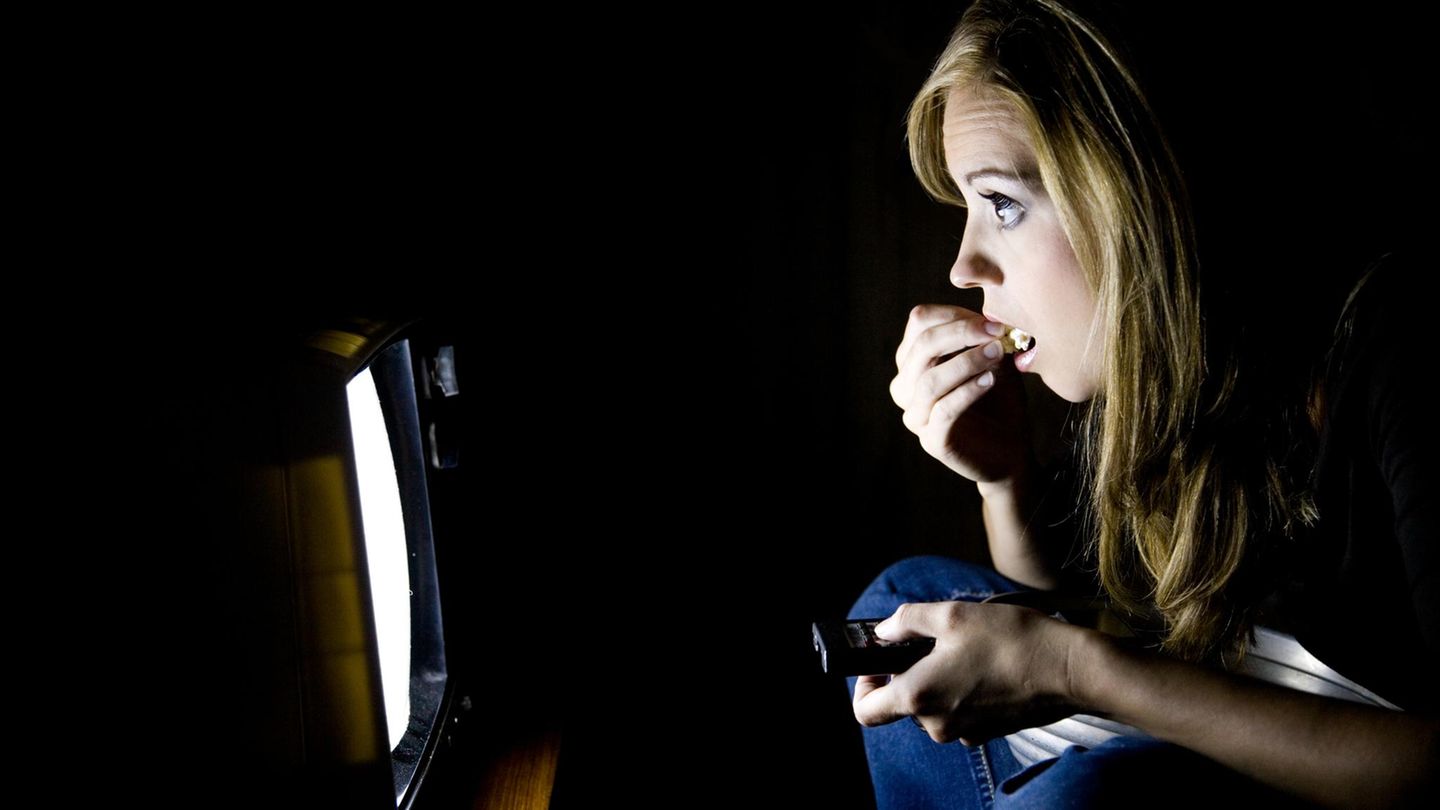Series marathon
“Cognitive skills are gradually stealing”
Copy the current link
Add to the memorial list
“Only one episode” – and suddenly it’s three in the morning. Series binge watching feels like harmless fun, but it does something with the brain.
The eyes burn, the neck is stiff, the sofa has long since accepted its own body shape – but only one episode. And then another. Maybe the next one. Anyone who has come into the pull of a series knows the feeling: The “Next Episode” button is an invitation that is difficult to resist. But what actually happens in the head when we let a fictional world swallow for hours?
Binge watching: the endless loop in the brain
Our brain loves stories. They are the sugar for our imagination, the fuel for emotions. Every time an exciting scene flickers over the screen, our body releases dopamine – a messenger that rewarded us and says: “More of it!” But while a good film or a single episode can act like a luxury food, a marathon of episodes quickly turns into a kind of mental shower that overwhelm our reward system.
Christine Geschke, a psychologist from Hamburg, warns: “The brain is exposed to a high load due to the variety of visual stimuli and constant flickering and has to process this impulses. Apart from this stress, it does not get any real suggestion. There is a risk that the cognitive skills are gradually stealing.”
To person
Dipl. psychologist Christine Geschke is a consultant and therapist in Hamburg and focuses on couples and relationships. In her own practice, she advises individuals, couples and families
In the case of so-called “trash TV formats”, the viewer no longer really has to think, since the information recorded remained superficially and the intellectual skills hardly challenged.
Our concentration suffers because our head gets used to quick stimuli. Dialogues, cuts, cliffhangers – everything happens in minutes, while real life runs much slower. The problem: our brain adapts. Suddenly normal conversations appear lengthy, work becomes tough, everyday life runs like chewing gum. “Everything that is not used regularly stuns over time,” says Geschke. But can everyone get into the pull of the series?
Who falls into the series trap?
No, not everyone becomes a serial junkie. People who want to escape or feel lonely in particular are susceptible. If you are looking for relaxation after a long working day, you will find a refuge in the captivating story. This is understandable – but dangerous. Because instead of actively recovering, we fall into a passive anesthetic. Even perfectionists who are difficult to “take” the day find a tempting break of themselves in the flight into foreign stories – with negative consequences.
A few hours of series? No problem. But if you regularly see through whole nights, you risk more than just dark circles. Sleep disorders are a common consequence because the blue screen light suppresses the sleep hormone melatonin. The brain stays in the guard mode, even if the eyes have long since fallen.
The risk: a life on a break
The memory can also suffer. Those who constantly jump from episode will train the brain on superficial information processing. Contents are recorded, but not processed or saved correctly-similar to endless social media scrolls.
There is also social life. If a “today I will stay at home” will be a permanent condition, our need for real interaction atoses. Talks with friends require more effort than the passive consumption of a series – and if the brain get used to the easy path, even an appointment can be exhausting.
The psychologist therefore warns: “Series addiction can lead to social isolation, physical symptoms such as back pain and sleep disorders as well as psychological problems. Excessive consumption often displaces real problems and lowers productivity.” And how do you save yourself from the unhealthy routine?
So you come from the binge trap
The first step: consciousness. Anyone who realizes that series have more control over themselves than vice versa can counteract. Small tricks help: Stop a episode consciously before the Cliffhanger strikes, do not have the television in the bedroom, a alarm clock that is reminiscent of switching off.
Even better: replace the dopamine kicks with real experiences. A walk cannot replace a series, but it gives the brain the chance to get used to slower, real stimuli. Reading, sport, creative hobbies – all of this trains our attention again in a healthy way. Looking on series is of course not a taboo, some formats can even be beneficial for the spectators.
Series can also do well
Demanding formats can have a positive effect, according to the expert. “With travel documentation you can really learn something about foreign countries, about foreign cultures. There are so many exciting topics as art and other cultural aspects that provide valuable insights,” says Geschke.
The psychologist emphasizes that it is fundamentally okay to see series as long as it does not become a fixed routine. Especially in a fast -moving and stressful period in which people are asked a lot, the consumption of entertainment can serve as a possibility of distraction and stress removal.
In the end, it’s like with good food: enjoying a series in moderation can be a pleasure. But if you eat exclusively from fast food entertainment, you shouldn’t be surprised if the head is tired and overflowing at some point. So: one episode less – and maybe experience a real story instead.
Source: Stern
I’m Caroline, a journalist and author for 24 Hours Worlds. I specialize in health-related news and stories, bringing real-world impact to readers across the globe. With my experience in journalism and writing in both print and online formats, I strive to provide reliable information that resonates with audiences from all walks of life.





